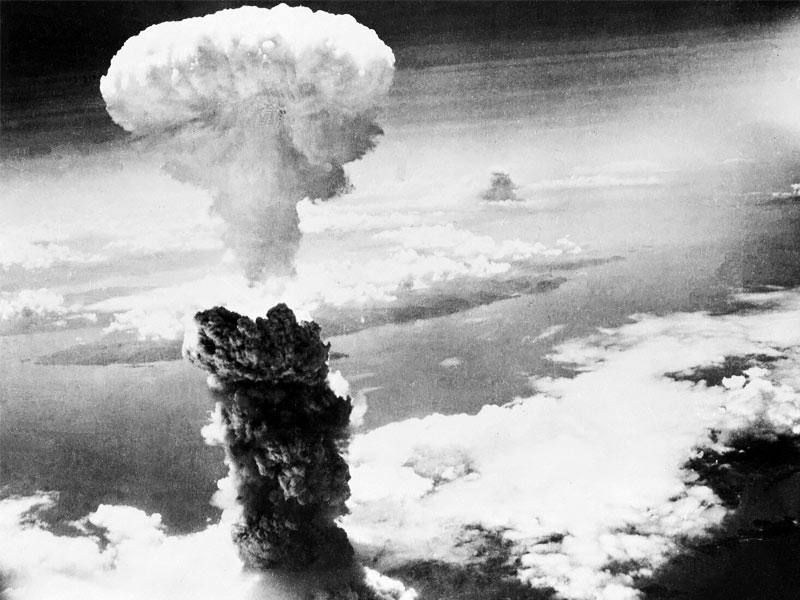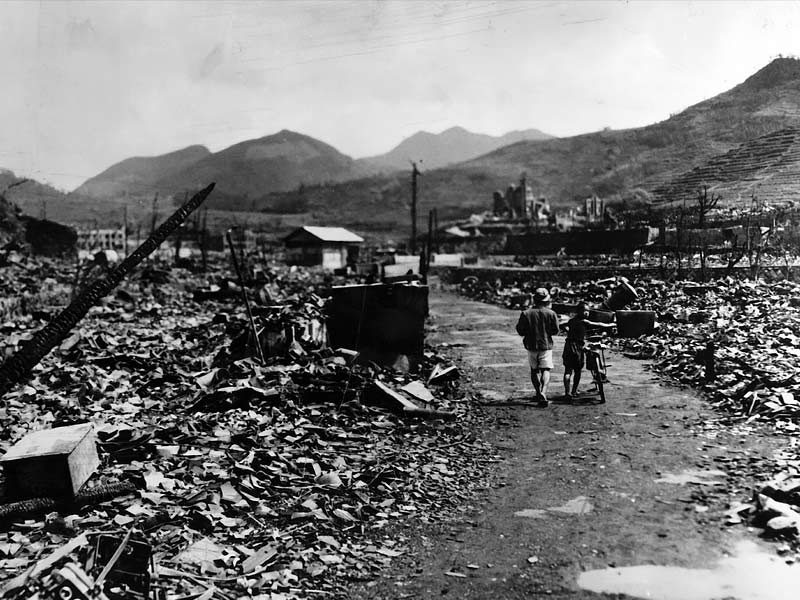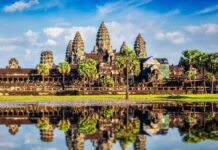Japan’s Prime Minister Kishida expressed sympathy for the victims of the horrific tragedy and promised to keep working toward a world free of nuclear weapons.
On Wednesday, Nagasaki, Japan, commemorated the 78th anniversary of the atomic bombardment by the US. Three days after Hiroshima was obliterated by the first nuclear weapon, a uranium bomb called “Little Boy,” the United States detonated the second nuclear bomb, called “Fat-man,” on the southern Japanese city on August 9, 1945.
Fumio Kishida, the prime minister of Japan, expressed sympathy for the victims of the horrific tragedy and pledged to keep working toward a world free of nuclear weapons.
I would want to express my deepest sympathies to those who are currently experiencing the repercussions of the atomic bombs as well as my sincere condolences to the souls of the victims.
Also, Read Digital Personal Data Protection Bill Passed In Lok Sabha
Never again must the tragedy that took place in Nagasaki 78 years ago today be replicated. We will keep working to achieve a world free of nuclear weapons because we are the only nation to have experienced atomic blasts, he added in a video statement.
He continued, “I would like to once again commit to doing everything in my power to create a world free of nuclear weapons and enduring peace.

United Nations Secretary-General Antonio Guterres recalled the tragic attack and its victims, saying that the world should never permit such tragedy to happen again and urged to eliminate the nuclear risk by abolishing nuclear weapons.
Atomic weapons were used to attack Nagasaki 78 years ago.
Never again must we permit such destruction. The UN head stated on X (previously Twitter) that eliminating nuclear weapons is the only way to completely eradicate the nuclear risk.
How did August 9, 1945 go?
The United States and its allies worked to put an end to the struggle with Japan as World War II dragged on. The aim to hasten Japan’s capitulation and prevent a drawn-out, expensive invasion led to the decision to employ atomic weapons.
The first atomic bomb, dubbed “Little Boy,” was detonated on Hiroshima on August 6, 1945, just 20 days after the United States successfully harnessed nuclear energy on July 16, 1945, following the “Trinity Test,” killing about 1,40,000 people by the end of the year.
The ‘Fat Man’ codename applied to the bomb dropped on Nagasaki. Over 80,000 individuals were slain. This led to Japan’s total and utter surrender to the Allies during World War II.
At least 70,000 people died in the initial Nagasaki explosion, and another 70,000 or so later perished from radiation-related illnesses. The “Fat Man” was dropped from the US Enola Gay warplane about 1,650 feet above Nagasaki.

This led to Japan’s total and utter surrender to the Allies during World War II. This led to Japan’s total and utter surrender to the Allies during World War II.
Around the world, people commemorate Nagasaki Day to advance peace and raise public awareness of the danger posed by nuclear weapons. This day is significant because it emphasizes anti-war and anti-nuclear protests in numerous nations.




























